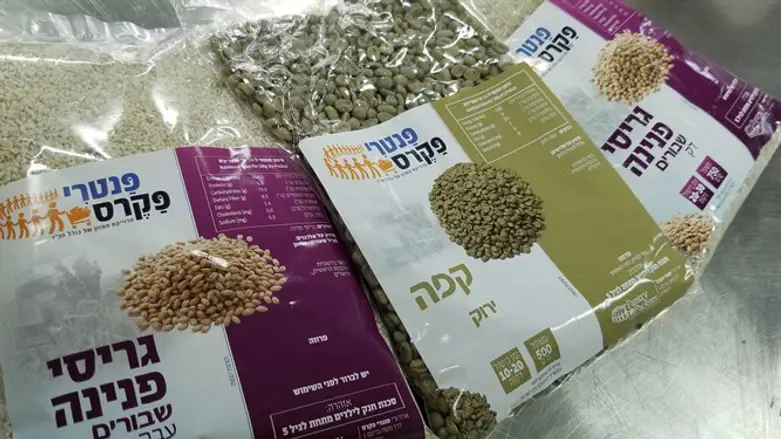
Home to different ethnicity and religious groups from all over the globe, Israel also reflects the diverse culinary traditions that define contemporary life. And within that diversity comes individual tastes and preferences often not shared among the broader population. Colel Chabad, as Israel’s longest running social services organization since 1788 provides tens of thousands of meals each month to the country’s needy via home-delivered packages and meals, and is responding to that understanding with carefully designed packages that respond to individual cultural and ethnic preferences.
This new approach is part of the organization’s Food Security Initiative in partnership with the Ministry of Welfare, designed not just to provide food handouts but to give recipient families the tools and confidence to get beyond the cycle of poverty in 48 municipalities around the country. Much of this food packaging is carried out in the Pantry Packers facility operated by Colel Chabad in a warehouse in the Talpiyot section of Jerusalem. Staffed by volunteers, including many tourists looking to inject a charitable dimension to their Israel itineraries, Pantry Packers prepares packages of dry goods to be included in the boxes delivered to homes all across Israel.
As a result of the new initiative, packages are carefully designed to ensure they are both nutritious but also enjoyed by the recipients – based on their specific cultural backgrounds. “We know that Ethiopian families for example, representing a sizable percentage of our beneficiaries, have very different tastes than other populations and we need to respond to those tastes,” says Rabbi Menachem Traxler, Director of Pantry Packers. “We therefore worked with the community to identity the products they use most in their homes and now we are able to give them the ingredients and flavors they are most familiar with, those that often come with a higher price tag because of their specialty.”
Included in the raw ingredients packages delivered to their homes are grains and dried beans as well as the traditional Ethiopian green coffee that is unique to the community. “We know that part of getting people to a level of self-sufficiency and economic independence is to ensure that they aren’t just being given something, but that they are being thought of,” Rabbi Traxler says. “The feedback that we get from this initiative is a sense that people understand that they are really being cared for and that gives them a feeling of hope and confidence to want to build better lives for themselves.”